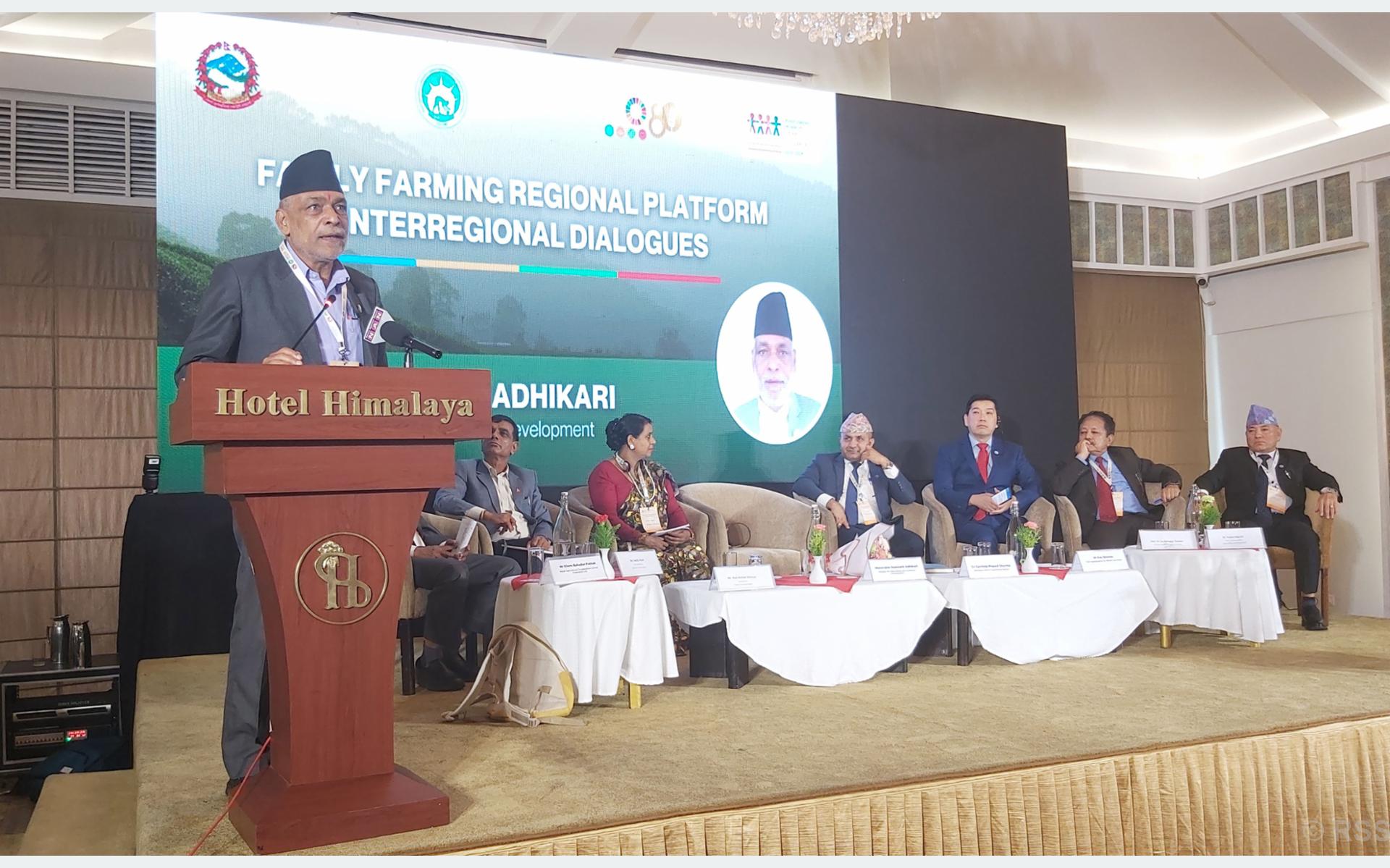Patan: Minister for Agriculture and Livestock Development, Ramnath Adhikari, has expressed his commitment to promoting an inclusive and climate-resilient agricultural.
Addressing the ‘Interregional Dialogues on Family Farming’ jointly organized by the Ministry of Agriculture and Livestock Development, the FAO Nepal, and other partner organizations here today, the Minister stated that climate-friendly agriculture, sustainable livestock farming, and the promotion of advanced technologies were prioritized within the national agricultural system.
Model agricultural cooperatives, integrated farming systems, and farmer-driven agricultural innovations are among the successful rural practices that have contributed to increased production and income for farmers, he claimed.
The event was held under the theme “Family Farming and Inclusive Rural Transformation: Innovations for Sustainable Development in the Face of Climate Change”.
According to the Minister, Nepal has paid heed to expansion of irrigation systems, increased availability of cold storage facilities, and strategic investment in value chains. These measures aim to ensure secure and profitable market access for farmers.
Highlighting Nepal’s vulnerability to climate change, the Minister stated that the country must move forward by confronting the challenges it poses. “Unpredictable weather, floods, droughts and landslides have threatened livelihoods and national food security. Recent natural disasters have caused significant losses in the agricultural sector, underscoring the urgency of better adaptive measures,” he added.
Planned crop diversification, improvement of soil fertility, sustainable water management and the promotion of drought and flood tolerant crops are among Nepal’s additional initiatives and priorities, the Minister shared.
“We call for increased regional cooperation in the exchange of climate data, development of early warning systems and strengthening of cross-border disaster preparedness,” the Minister said, adding that Nepal’s experience in hill and mountain agriculture can offer the global community valuable insights into climate adaptation, maximum utilization of natural resources and the implementation of community-based approaches in agriculture.
Moreover, the Minister added we have to adopt flexibility by reviewing tax imposed on agro produces with an objective of sustainable development of family farming system and ensuring equal access of small farmers in international markets and benefit. “Family farming, where small to medium scale farmers are involved, is the main practice of agriculture in both developed and developing countries.”
Family farming is a major basis to ensure our culture, tradition and food security in addition to economic activities in Nepal, he shared, adding that the family farming system is key component of inclusive and rural transformation.
Expressing a deep respect towards hard work and dedication of farmers, women and youths in rural areas of Nepal, Minister Adhikari argued that they were backbone of food system and guardians of agricultural heritages.
The Agriculture Minister urged the participants to initiate a concrete step to make family farming a respectful, profit-oriented and sustainable occupation so it would not be limited to a medium of livelihood.
Similarly, Chairperson of the Agriculture, Cooperatives and Natural Resources Committee under the House of Representatives, Kusum Devi Thapa, said the parliament has played a significant role in building inclusive and farmers-friendly laws. She laid emphasis on political willpower and technical human resources for sustainable and effective development of agriculture sector.
Likewise, Secretary at the Ministry, Govinda Sharma, expressed the belief that the discussion to be held among policy makers, farmers and stakeholders would dwell on family farming system and measures to lessen the impacts of climate change in agriculture sector.



Comment Here